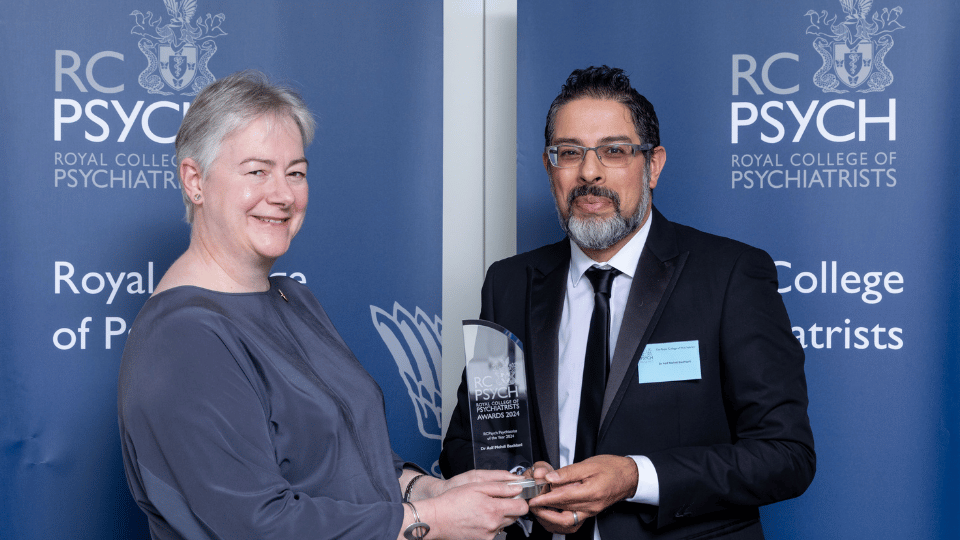Private autism assessments and diagnosis
Get fast, expert-led autism assessments with no referral delays.
- Diagnosis in 4–6 weeks
- Autism assessment available from £2,150
- No GP referral needed
- Recognised NICE-standard reports
Priory offers private autism assessments for children and adults who are showing signs of autism, with waiting times that are significantly shorter than the national average.
Our autism assessments are conducted by one of our qualified professionals, all of whom are experts, and specifically trained in the field of autism diagnosis and support.
Following the autism assessment, we’ll provide you with a comprehensive outcome report, based on NHS and National Institute for Health and Care Excellence (NICE) standards. The entire end-to-end process for our private autism assessment usually takes between 4 to 6 weeks.
Our autism assessment process is the same for both adults and children. It’s made up of a number of elements, including:
"A diagnosis provides a psychological map of understanding of where a person struggles and what they might now be able to do about it. It also improves their sense of identity, something that improves their sense of who they are, and this alone improves their mental health.
Having a formal autism assessment and diagnosis also gives them something they can take to their employer/school to ask for support.”
Read more about the importance of diagnosis here.
We offer a free online screening test for autism, known as the AQ-10. The AQ-10 is a quick questionnaire that you can complete on behalf of yourself or a child. It’s a simple screening tool that indicates whether you/your child might benefit from receiving a full diagnostic assessment for autism.
The AQ-10 has three versions. You can click on the relevant link below to take the test for yourself or your child:

To start the autism assessment process, you'll need an initial assessment to ensure you are suitable for the full autism assessment. This initial assessment costs £99 for adults and £186 for children.
Should we then recommend that you proceed to the full autism assessment, this costs from £2,150. If you're already in treatment with Priory, you may not need to have the initial assessment.
The autism assessment process includes:
This applies to both adults and children.
The full process usually takes 4 to 6 weeks from start to finish, depending on availability and the complexity of the case. Appointments may be available in as little as 2 weeks.
No, you don’t need a formal GP referral to be able to access our autism assessment process. The exception to this is when a person needs to see a psychiatrist before entering the process.
Yes. A formal diagnosis can help you or your child access reasonable adjustments and tailored support at school, college or in the workplace. The outcome report can be shared with educational or occupational settings to aid understanding and secure the right support.
We can offer autism assessments for children from the age of 4 years.
Depending on the age of the young person, parents/guardians can be involved in all stages of the assessment process. This can be discussed and agreed upon during the initial screening session.
During the ADI-R stage of the autism assessment process, we need to gather information on the person’s developmental history from as many people as possible. Therefore, parents/guardians and other key people in the person’s life will need to be involved. This is the case for both adults and children.
Most autism assessments can be conducted by either a therapist or a psychologist, but some people may benefit from seeing a psychiatrist. The type of specialist you’ll see can depend on a number of factors. These include:
We can guide you through the options during your initial conversation with us, and help to determine which would be the most appropriate for you. If you start on the therapist or psychologist route, but it becomes clear that you’d benefit from a psychiatric assessment, then we can refer you to one of our psychiatrists quickly and easily.
If your assessment needs to be conducted by a psychiatrist, the cost of this is typically around £2,500, though this may vary depending on individual consultant fees.
For more information on the end-to-end process for our autism assessment, please download our detailed information sheet, available in the 'downloads' section below. This document provides an insight into each step of the process, helping you to determine if our assessment service is suitable for your needs, and ensuring you're fully informed and prepared.
To get started with an autism assessment, you can call us to arrange an appointment near you. We have several locations around the UK that can support adults and children seeking diagnosis.

Dr Asif Mehdi Bachlani, a consultant psychiatrist at Priory, has been named ‘Psychiatrist of the Year’ by the Royal College of Psychiatrists.
Dr Bachlani leads Priory Hospital Woking’s autism pathway and has played a pivotal role in establishing the first diagnostic pathway for autism within Priory’s private healthcare services.
This assessment model is being introduced across all Priory hospitals and wellbeing centres, improving access to timely autism diagnosis and personalised support.
Dr Bachlani has also created a 12-week programme for newly diagnosed individuals, offering psychological support, guidance, and ongoing care.